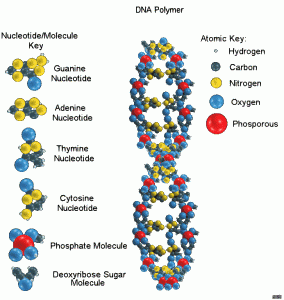fMRI reveals large-scale network activation in minimally conscious patients
The first fMRI maps of cortical activity associated with language processing and tactile stimulation of patients in the minimally conscious state (MCS) are presented. These findings of active cortical networks that serve language functions suggest that some MCS patients may retain widely distributed cortical systems with potential for cognitive and sensory function despite their inability […]
The first fMRI maps of cortical activity associated with language processing and tactile stimulation of patients in the minimally conscious state (MCS) are presented. These findings of active cortical networks that serve language functions suggest that some MCS patients may retain widely distributed cortical systems with potential for cognitive and sensory function despite their inability to follow simple instructions or communicate reliably.
fMRI reveals large-scale network activation in minimally conscious patients
N. D. Schiff, MD, D. Rodriguez-Moreno, MS, A. Kamal, MD, K. H.S. Kim, MD, PhD, J. T. Giacino, PhD, F. Plum, MD and J. Hirsch, PhD
From the Department of Neurology and Neuroscience (Drs. Schiff, Kamal, and Plum) and Graduate School of Medical Sciences (D. Rodriguez-Moreno), Weill College of Medicine, Cornell University, and Departments of Radiology and Psychology, fMRI Research Center (Dr. Hirsch), Center for Neurobiology and Behavior, Columbia University, New York, Center for Functional and Molecular Imaging, Division of Clinical Pharmacology (Dr. Kim), Georgetown University Medical Center, Washington, DC, and JFK Johnson Rehabilitation Institute (Dr. Giacino), Edison, NJ.
Address correspondence and reprint requests to Dr. J. Hirsch, Functional MRI Research Center, Neurological Institute, Columbia University, 710 W. 168 St., Box 108, New York, NY 10032; e-mail: jh2155@columbia.edu
Background: The minimally conscious state (MCS) resulting from severe brain damage refers to a subset of patients who demonstrate unequivocal, but intermittent, behavioral evidence of awareness of self or their environment. Although clinical examination may suggest residual cognitive function, neurobiological correlates of putative cognition in MCS have not been demonstrated.
Objective: To test the hypothesis that MCS patients retain active cerebral networks that underlie cognitive function even though command following and communication abilities are inconsistent.
Methods: fMRI was employed to investigate cortical responses to passive language and tactile stimulation in two male adults with severe brain injuries leading to MCS and in seven healthy volunteers.
Results: In the case of the patient language-related tasks, auditory stimulation with personalized narratives elicited cortical activity in the superior and middle temporal gyrus. The healthy volunteers imaged during comparable passive language stimulation demonstrated responses similar to the patients’ responses. However, when the narratives were presented as a time-reversed signal, and therefore without linguistic content, the MCS patients demonstrated markedly reduced responses as compared with volunteer subjects, suggesting reduced engagement for “linguistically” meaningless stimuli.
Conclusions: The first fMRI maps of cortical activity associated with language processing and tactile stimulation of patients in the minimally conscious state (MCS) are presented. These findings of active cortical networks that serve language functions suggest that some MCS patients may retain widely distributed cortical systems with potential for cognitive and sensory function despite their inability to follow simple instructions or communicate reliably.







